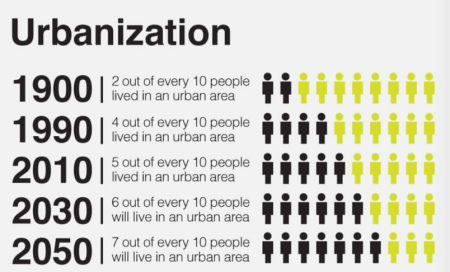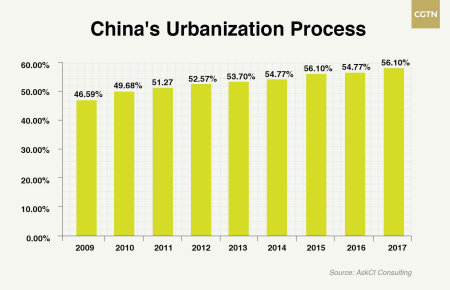Urbanization: A necessary path toward modernity

Urbanization, a major reform process where people from rural places shift to urban areas, serves as a key engine for sustainable economic growth, as it can bring up domestic consumption and investment.
In 2017, permanent urban residents, including those who migrate from countryside, account for 58.5% of China's population—roughly 809 million people. That rate is expected to hit 60% in 2020.

As an important part of structural reform, China's urbanization program has extended itself to developing city clusters, which coordinated regional development and urbanization, as Xi stressed at the 19th CPC National Congress which ended four months ago.
The coordinated development of Beijing, Tianjin and Hebei Province, also known as Jing-Jin-Ji, is one of the strategies, aiming to create a world-class cluster in northern China.
He Lifeng, director of China's National Development and Reform Commission, said in March that the area would help distribute wealth that had been sucked into Beijing to the areas surrounding the capital – many of which are still impoverished villages.
Reform has released great potential of the Chinese people, while the opening-up brought enormous opportunities for the overseas companies.


















































